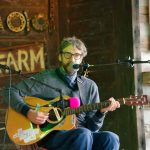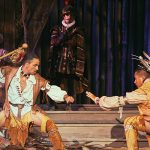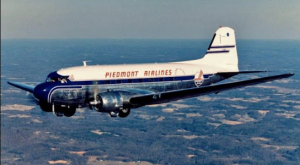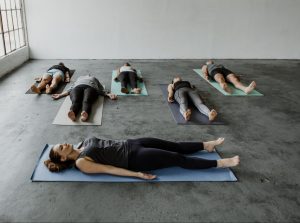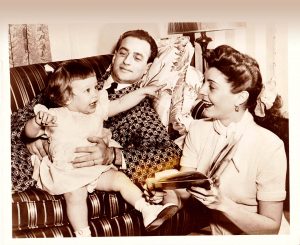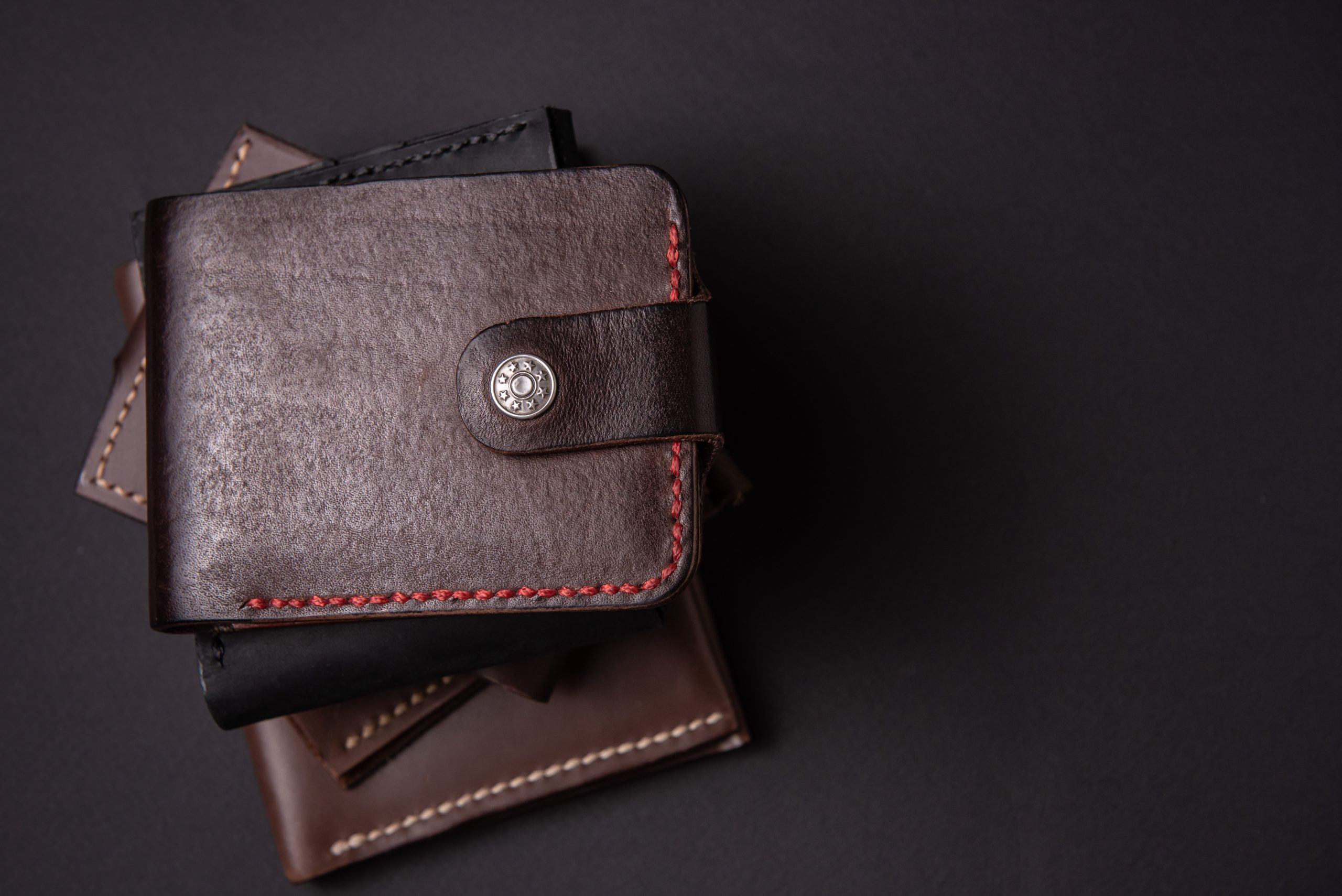
Walter’s Wallet
By Jim Dodson
Not long ago, while cleaning out a desk drawer I should have cleaned out years ago, I found a simple but beautifully made full-grain leather breast pocket wallet with the initials “W.W.D.” embossed in gold leaf just inside.
It looks brand-new and essentially is — though it was made sometime in the early 1940s.
My father gave me this wallet in 1995 while we were on a golf trip to England and Scotland to play the golf courses where he learned to play the game while serving on the Lancashire coast as a trained glider pilot during the Second World War.
The wallet originally belonged to my grandfather, William Walter Dodson. It was a gift from my father in the early summer of 1945, when my grandparents took a train from their farm in North Carolina to meet him at the New York Harbor, where the Queen Elizabeth had carried him home from the war.
As far as I know, it was the only visit they — Walter and Beatrice Dodson — ever made to New York City. My mother, dolled up to look like Veronica Lake, met them there, fresh from her job working for an admiral in Annapolis — being chased around the desk by a “brass admiral,” as my old man always ribbed her. She was indeed a beauty, the youngest of eleven children from the hills of West Virginia and a former Miss Western Maryland who up and ditched a rich guy named Earl who drove a Stutz Bearcat before the war in order to marry my father shortly before he enlisted. While my dad was away, the singer Tony Martin offered her a job singing with his orchestra, but my strong-willed Southern Baptist grandmother quickly put the clamps on that.
My dad purchased this handsome wallet for his father somewhere in London’s Covent Garden, I learned decades later, and a dozen bottles of French perfume for his Liberty Bride after the liberation of Paris, and hid them in the bottom of his military footlocker to get past customs officials. I have no idea what he brought his mother. Real English tea, perhaps.
The story I always heard was that they all went to Toots Shor’s on 51st Street for supper that night but couldn’t get in for all the jubilant GIs and their gals — settling, in the end, for pastrami sandwiches at the Carnegie Delicatessen. My grandparents, farm people, reportedly turned in early at their modest hotel, and my dad took his bride to a Broadway show.
My dad tried to give me this wallet for the first time on the day of my grandfather’s funeral in 1966. I suppose he reasoned that because I was named for both my grandfathers — Walter is my middle name — I might wish to have it as a keepsake of its quiet-spoken owner.
But he was wrong about that — at least then.
I was 13 and didn’t see the point of carrying around a dead man’s unused wallet, even one I was named for, though even then I recognized its fine craftsmanship, hand-sewn from Moroccan leather, with a fine brass zippered compartment and even an ingenious little slot containing a leather square marked “stamps,” a relic from a time when a letter home really meant the world. Then there were the three beautiful initials in gold leaf.
I did love my grandfather, you must understand, even if I didn’t fully grasp his peculiar ways, his calm and protracted silences and natural simplicity of motion. By the time I really got to know him, Walter Dodson had given up his farm in Guilford County and moved with my grandmother to a small cinderblock house surrounded by rose bushes and dusty tangerine trees on the shores of Lake Eustis in central Florida.
I hated going there for Christmas. No place on Earth could possibly have been slower and more boring to my churning pre-teen brain. And yet . . . Walter took me bass fishing in his skiff and showed me how to cast a spinning lure and, later, in his modest carport, taught me how to cut a proper straight line with a hand saw and hammer a nail without smashing my thumb or finger.
He smoked cheap King Edward cigars and sometimes hummed what sounded to me like church hymns, though he never went to church when my Baptist grandmother did. William Walter Dodson headed straight for his garden.
Mind you, I was never uncomfortable in my grandfather’s presence — in fact, quite the opposite. Though I couldn’t have begun to put it into words at those moments on those silent bayou waters, he struck me as a man who loved being outdoors all the time, either tying his tackle lines or snipping his roses or hoeing in his large vegetable garden or just sitting in his shaky carport chair listening to what my older brother Dickie and I mockingly called “redneck string music” on his Philco radio as the crickets sang on his lawn and fireflies danced in the tangerine trees. Astonishingly to us, our grandparents didn’t even own a TV set.
After Walter’s sudden death, and after I declined to accept the gift of his wallet, my father placed his father’s wallet in his office desk, where it stayed for the next thirty years. He brought it along with us to Britain for what would turn out to be our final golf trip and offered it to me, almost off-handedly, one evening as we were having supper in a pub in St. Andrews.
By then I had a very different understanding and appreciation of my “simple” Southern grandfather.
He was a rural polymath and carpenter who never got beyond the third grade but had a gift for making anything with his hands. During the 1920s, he worked on crews erecting the state’s first rural electrification towers, for instance, and returned to Greensboro just in time to serve as a foreman on the crew wiring the Jefferson Standard Building, the state’s first “skyscraper.”
Walter’s famously calm silence suddenly made sense. His mother, Emma, my father’s grandmother, was a full-blooded Cherokee woman who was known for her natural remedies along Buckhorn Road between Hillsborough and Carrboro. My father spent his earliest summer days on Aunt Emma’s farm, accompanying this gentle Native American woman on her daily plant-gathering walks over the fields of the original Dodson home place. Walter, the oldest of her four sons and two daughters, clearly identified with his lost Indian ancestry — as did, to some extent, my own father. Today, the old family homestead is an upscale housing development.
But like Walter’s surviving wallet, nothing important is really ever lost.
One of the first adventures our father took my brother and me on as small boys was to hunt for buried arrowheads at the Town Creek Indian Mound in the ancient Uwharrie Hills. When we began camping and fishing in the Blue Ridge Mountains, he always took a bag of useful books along to read — a hodgepodge of titles ranging from Kipling’s Just So Stories to the works of Sir Walter Scott — which he called, tellingly, his “Medicine Bag.”
William Walter Dodson, I came to learn, was a man from another time and place who knew the simple pleasures and abiding peace of the natural world. His own kindness wasn’t showy but genuine.
During the Great Depression, whenever someone down on their luck showed up at his back door seeking help, according to my father and other family members, Walter would feed him and provide a bed in a spare but clean room behind his barn. Skin color was irrelevant. My Southern Baptist grandmother, though something of a social butterfly who preached the value of book-learning, wasn’t nearly so naturally generous of spirit.
Somewhere in our voluminous family scrapbooks is a faded snapshot of Walter standing beside a Black man I only knew as “Old Joe” who lived in that room and helped out on the farm for years. No one knows his real name, but it hardly matters. Reportedly, Walter and “Old Joe” were close friends for years.
Save for my own fading memories and a rusted twenty-two rifle and this handsome wallet from Covent Garden — still looking almost as new as that day my father gave it to his father in New York City half a century ago — that’s about all I have left of my paternal grandfather, the dignified fellow who taught me to fish in a bayou and saw a straight line and — more importantly — savor the healing quiet of nature.
I tell myself Walter never had enough money to really need such a fine wallet, which may explain its excellent condition. But that’s only speculation on my part.
The older I get, the more I appreciate the rhythms of W.W.D.’s simple life.
By contrast, my modern life seems anything but simple.
Which explains why, going forward in this column space, I plan to write about the simple life I aspire to — the small things, people and moments that need to be observed and learned from simply for the grace they provide. Hence the new column title.
This week I’m driving up to New York City to see my son, Jack, a recent college graduate working for a documentary film company. Making films is his dream. We’re going to play golf together for the first time in many years.
Afterward, maybe even over cheap cigars, I think it may be time I offered Jack his great-grandfather’s wallet, which I recently found in the back of my own office desk, where it’s been since that final trip in 1995.
If he’s not quite ready to have it, well, I’ll naturally understand.
I’ll be more than happy to hold onto it until he feels the need to have it.

